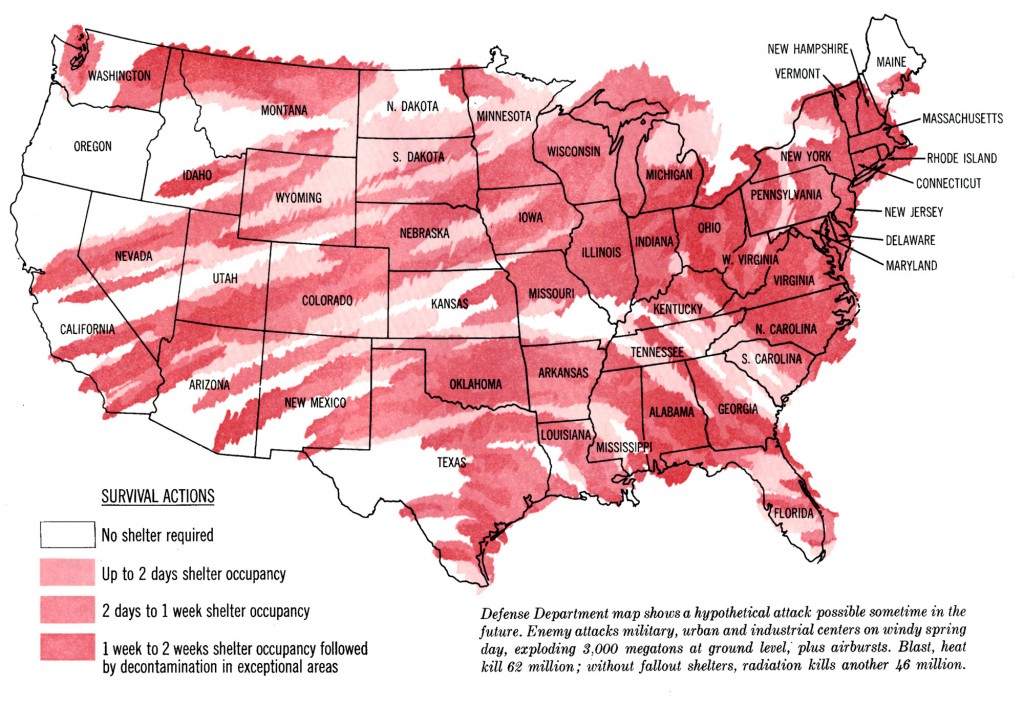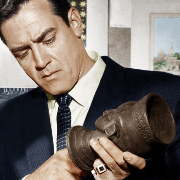(Thread IKs:
Stereotype)
|
Undecided Moderate posted:Im curious how many of you home farmers use fertilizer The beds get an annual layer of anything-that-was-once-alive compost and are kept under grass or horticultural chip mulch. Nitrogen tends to get washed out of these sandy soils so I've been experimenting with cover crops but fava beans are insanely expensive per seed (I know, I know, grow yer own) and if you get lazy and don't harvest hairy vetch at the right time you have another happy little weed popping up in your beds for years afterwards. Salt lovers (asparagus and salsola) get a seaweed mulch, excess goes in the compost. I use a commercial 4-4-4 organic mix and crushed limestone for some purposes. The 4-4-4 is used in the recipe for making soil blocks - a better alternative to using plastic seed trays to start veges indoors. I also have been following the advice to put some of it under transplants when they're put out in the garden. I think I will stop doing this though because it leads to quick, soft growth. Fine for the before times but I don't think it's working well the last couple of years. The spring has been too cold for these plants to grow properly and utilize the extra nutrients, then within a week we've been going from Junuary to Heat Dome. It's hard to get enough shade cloth out to keep your plants from keeling over. Last year I replanted my squash and melon vines three times after the first lot was killed by the cold and the second by the heat. I was running out of growing season by the third. I might stop with the crushed limestone around the trees in the fall. Standard advice for this area where all the rain leaches calcium out of reach very quickly. I'm wondering though if this isn't necessary if you build a biologically active soil around them using mulches. Someone did some research showing that adding bone meal to tree transplant holes is actually a bad idea - the bone meal inhibits mycorrhiza that would normally make calcium available to the tree. In response the tree puts out a lot of root growth seeking the calcium it's starving for, giving us the illusion of tree health. I think Simone Simard might be on to something. Unfortunately there's no ethical (or environmentally sound) consumption under capitalism: 1) "Grass" (using the term loosely) mulch / compost ingredient is harvested from the meadows and verges using 30 horsepower of internal combustion goodness. 2) Main compost ingredient is manure. Due to the rain local hay is high sugar / low protein, so anyone who is concerned about their animals developing diabetes feeds hay trucked all the way from Alberta or Washington state.  3) Horticultural chips are from downed branches, shrub pruning, etc. More severe winter storms and changing forests are producing a lot of raw material. Hopefully turning it to chips reduces some of the fire risk. Processing requires (you guessed it) an 8 hp gasoline engine. 4) I bring one or two truckloads of seaweed up from the beach every winter. The collecting beach is 20 kilometres away because the 6 km beach doesn't concentrate drifting seaweed anywhere near as well. There's been a number of papers documenting shoreline nutrient transfer on the B.C. coast - bears, raccoons, wolfs, and other scavengers dragging tasty bits up slope and leaving the remains to rot in the trees. Also the effect of bears making GBS threads in the woods, which they do. I'm just mimicking this natural process except I'm transferring nutrients to a different watershed south of where I collected and being an ambitious hominid I'm dragging them way the gently caress upslope and over a ridge or two. Just a bear driving an diesel F250. Also I poo poo in a box buried in the front yard, civilized bear that I am. Hmm. Lot of Also: gently caress heat domes. Cloudy and cool this spring, day temperatures have been running 12o to 19o, forecast to hit 27o by Sunday. Going to do a tour of the garden centres in case they have any seedlings left and I need to start again.
|
|
|
|

|
| # ? May 25, 2024 20:32 |
|
Undecided Moderate posted:Im curious how many of you home farmers use fertilizer Just compost and the cow poo poo in potting soil or whatever
|
|
|
|
Hexigrammus doing good things. I'm just thinking about the time someone in the weed growing thread mentioned using their girlfriend's menstrual blood in their compost. Blood is fine, but there are better sources.
|
|
|
|
Undecided Moderate posted:Im curious how many of you home farmers use fertilizer I don't. Make my own compost and vermipost. Helps me cut down on my overall trash and recycling output a ton. Any un waxed cardboard goes into compost or as weed control. Someone local just bought one of my big rear end crow paintings and I'm like pls just let me drop this thing off instead of shipping it. At least my hobbies that let me try to embrace the horrors give me a bit of joy and people like them. silicone thrills has issued a correction as of 16:53 on Jun 23, 2022 |
|
|
|
half of Italy's crops at risk bc of the drought https://twitter.com/giulio_mattioli/status/1539541837794484225 flooding in Guangdong, Guangxi and Jiangxi at the same time as a heat wave https://twitter.com/bephillip33/status/1539944001482231809 which happened shortly after the floods in Bangledesh https://twitter.com/AJEnglish/status/1539609157136957443 west Africa also flooding https://twitter.com/KidanAraya/status/1539609462784331776
|
|
|
|
CRUSTY MINGE posted:Hexigrammus doing good things. Unless she has really rough periods ofc. You're really just not going to get enough to make it worth using
|
|
|
|
Perry Mason Jar posted:It's going to be the water scarcity, subsequent hoarding, and violent expropriations. this is the "and then quickly" part. it took centuries for roman civilization to collapse, we're managing it on a timescale where individual human beings can perceive the changes. that should not be possible lmao
|
|
|
|
it's really impressive. we are gods.
|
|
|
|
I've been told I should probably piss on my compost but as a woman its so much more difficult. Dudes can just like point and shoot. I gotta like piss into a loving jar or something then go pour it on. It all gets too over complicated. I can't imagine throwing my blood in there too.
|
|
|
|
/\ go buy a widemouth funnel for your piss jar E: alternatively  TeenageArchipelago posted:Unless she has really rough periods ofc. You're really just not going to get enough to make it worth using I think the reasoning was more mystical woo poo poo than common sense. This is why I buy my weed from dispensaries (can't grow in this apartment). Some rear end in a top hat out there is probably jerking off into his compost pile. CRUSTY MINGE has issued a correction as of 17:18 on Jun 23, 2022 |
|
|
|
Zodium posted:this is the "and then quickly" part. it took centuries for roman civilization to collapse, we're managing it on a timescale where individual human beings can perceive the changes. that should not be possible lmao I am very very hard pressed to imagine pure resource scarcity (water or oil) being allowed to get to civilization-destroying levels without someone starting a nuclear war first. It seems like the first nuclear power which is sufficiently starved/thirsty and internally destabilized to just not give a gently caress will pull the trigger, and that's making a big assumption that we don't get to nuke fire earlier than that because India or somewhere destabilizes enough that a regional partisan group gets ahold of nukes. I garden and farm because it gives me joy and gets me away from computer touching. I don't really envision many scenarios where it'll matter from a survival perspective. Scenarios where I have access to better or more variety of food because of local support nets and farming, seem somewhat more likely but because those aren't the Very Bad Things worlds, if they come to transpire they will just be temporary forms on the way to the next part of systemic change (collapse). edit: also gardening (and increasingly trying to toe the line to "farming") gives me a bunch of really tasty food for not much money that I can enjoy and share. It's fun and IMO more practical than hoarding black rifles (once you already have your whole family / cult / compound armed, of course). Cabbages and VHS has issued a correction as of 17:27 on Jun 23, 2022 |
|
|
|
everybody get pet chickens, it's cool and good to have chickens  unless you don't eat animal products I guess
|
|
|
|
Shifty Nipples posted:everybody get pet chickens, it's cool and good to have chickens you could have pet chickens, sell their eggs and keep the money in an account you don't touch until it reaches a set sum. then put out a bunch of different possibilities for using the money on a mat and let the chicken pick which one it wants to use its money on.
|
|
|
|
Cabbages and Kings posted:I am very very hard pressed to imagine pure resource scarcity (water or oil) being allowed to get to civilization-destroying levels without someone starting a nuclear war first. It seems like the first nuclear power which is sufficiently starved/thirsty and internally destabilized to just not give a gently caress will pull the trigger, and that's making a big assumption that we don't get to nuke fire earlier than that because India or somewhere destabilizes enough that a regional partisan group gets ahold of nukes. I think people have unrealistic estimates of how devastating a nuclear war will be, because our media about it is based on the perspective of people living and working in direct target areas. Even a full exchange between every nuclear power wouldn’t do as much damage to human habitability or ecosystems as climate change will.
|
|
|
|
Trabisnikof posted:I think people have unrealistic estimates of how devastating a nuclear war will be, because our media about it is based on the perspective of people living and working in direct target areas. There will still be large swaths of areas untouched by fallout even in the US if it happened.  lol i like how the cascades just hold all the fall out in place. Apparently i'd just need to head to eastern WA or down to OR. Seems like if you survive the first few weeks you could go back to your area if undamaged
|
|
|
|
Pepe Silvia Browne posted:you could have pet chickens, sell their eggs and keep the money in an account you don't touch until it reaches a set sum. then put out a bunch of different possibilities for using the money on a mat and let the chicken pick which one it wants to use its money on. I like that idea
|
|
|
|
who even cares about all this
|
|
|
|
a full exchange would end industrial civilization and modern farming so even if your field isn't contaminated, you're not getting much of a crop for the next few seasons without fertilizer, even if you can conscript enough labor to till and plant it by hand
|
|
|
|
|
kater posted:who even cares about all this It's something to talk about. I think nuclear exchange is a super low possibility until various governments start to fall from people literally beating the politicians to death when they are starving due to multiple corn and wheat crop failures. Ill think about it more in a decade probably.
|
|
|
|
Still not misanthropic enough to think a nuclear exchange happens. It almost did once before save for the good conscience of a lower level grunt tasked exclusively with pressing the actual button. Someone down the chain will have some good sense, and it'll probably always be the button-pusher cause who the gently caress wants to be that guy
|
|
|
|
Dustcat posted:a full exchange would end industrial civilization and modern farming so even if your field isn't contaminated, you're not getting much of a crop for the next few seasons without fertilizer, even if you can conscript enough labor to till and plant it by hand nah not globally
|
|
|
|
Spergin Morlock posted:those NYC people are going to be the reason why NY state is not the best place to go lol told my family this and the first response was that real estate values would go up looool
|
|
|
|
Undecided Moderate posted:Im curious how many of you home farmers use fertilizer As a side-note, Haber Bosch, in some form or another, is never going away, ever. There could be a full scale thermonuclear war and the complete collapse of every government, supply chain, transportation & energy network, but whatever humans are left will be synthetically fixing atmospheric nitrogen by hook or crook until they are extinct. That's not a trick you unlearn, it can be done on small scale and the feedstocks are flexible and abundant.
|
|
|
Trabisnikof posted:nah not globally fair enough. i'm just looking at that fallout map and the rural americans left behind after nuclear rapture are not gonna have a good time of it
|
|
|
|
|
Morbus posted:As a side-note, Haber Bosch, in some form or another, is never going away, ever. There could be a full scale thermonuclear war and the complete collapse of every government, supply chain, transportation & energy network, but whatever humans are left will be synthetically fixing atmospheric nitrogen by hook or crook until they are extinct. That's not a trick you unlearn, it can be done on small scale and the feedstocks are flexible and abundant. This is how I feel about fossil fuels. We rang the bell and there's no part of humanity that will ever forget burning gas, coal, or oil for energy. If 10000 people live after a major pandemic, comet strike, volcanic eruption, whatever - that knowledge will probably stay. I will say there was one culture that literally forgot writing but that was mostly because oral traditions were fine. And its not like writing gave them sweet as VROOM VROOMS
|
|
|
|
Dustcat posted:fair enough. i'm just looking at that fallout map and the rural americans left behind after nuclear rapture are not gonna have a good time of it Also it depends on your definition of industrial civilization, 1850s was industrialized to some degree 
|
|
|
|
silicone thrills posted:This is how I feel about fossil fuels. We rang the bell and there's no part of humanity that will ever forget burning gas, coal, or oil for energy. If 10000 people live after a major pandemic, comet strike, volcanic eruption, whatever - that knowledge will probably stay. All the knowledge that goes into making VROOM VROOMS would be lost. A modern automobile might make it 10 years, but without all the manufacturing surrounding it, would break down at some point, and become useless. Gas eventually breaks down and becomes useless, and oil becomes acidic and etches the engine, damaging it, so even if you found a newer car to replace one that broke down, it's probably hosed. This doesn't even factor in the sheer amount of electronics on your car, at some point a vital part will overload and be hosed, so good luck replacing that module. The internal combustion engine would become a semi-lost technology, it might be understood, but without global manufacturing, good luck building a new one.
|
|
|
|
Iron Crowned posted:All the knowledge that goes into making VROOM VROOMS would be lost. A modern automobile might make it 10 years, but without all the manufacturing surrounding it, would break down at some point, and become useless. Sure. But people are still gonna be grabbing coal off coal seams to burn in their houses because that took place long before industrialization.
|
|
|
|
silicone thrills posted:Sure. But people are still gonna be grabbing coal off coal seams to burn in their houses because that took place long before industrialization. And we helpfully have uncovered millions of tons of coal already. Hell you can pocket a few hundred pounds a day just walking along the right railroad tracks. External Combustion Engines are back baby!
|
|
|
|
This is an interesting thought experiment of sorts. I did some half rear end google fu, and assuming a world total of 15 million engineers, that's 0.002% of the population, so in a population reduced to 10,000 people, that's about 20 surviving engineers world wide, which is more than I expected. An engineer in 2022, is probably a bit removed from an engineer in 1922, so they'd need machinists, to build a rudimentary coal fired engine. I couldn't find a world wide estimate, so I used US estimates, and came to about 0.001%, meaning that there would now be 10 machinists world wide. Unless everyone is cloistered together, I just don't see how even coal gets used for much more than heating. All the technologies, materials, and processes would be lost or unattainable. We'd be back to the stone age, because even the bronze or iron ages require smelting techniques, that I doubt the average person could learn from reading a couple textbooks in the aftermath of an apocalypse.
|
|
|
|
Iron Crowned posted:This is an interesting thought experiment of sorts. true but how much use is a software engineer or systems engineer when there’s no electricity
|
|
|
|
Iron Crowned posted:All the knowledge that goes into making VROOM VROOMS would be lost. A modern automobile might make it 10 years, but without all the manufacturing surrounding it, would break down at some point, and become useless. There's a museum nearby that has an old school steam powered sawmill, I'm gonna fortify that and dine richly on the exhibition animals and visitors Edit: gently caress just checked and it runs on electricity now. Fml
|
|
|
|
Iron Crowned posted:All the knowledge that goes into making VROOM VROOMS would be lost. A modern automobile might make it 10 years, but without all the manufacturing surrounding it, would break down at some point, and become useless. Nobody is gonna be making an integrated circuit or modern iCE without really large scale economic cooperation and trade networks. But making a simple combustion engine (internal or external) to drive a tractor or pump water is not particularly difficult, and can be done on small scale (even without the pre-existing and hugely abundant reservoir of machined parts, good quality steel, tooling, etc). Honestly you could just keep some number of the many remaining pre-collapse engines limping along almost indefinitely, cannibalizing others for spare parts as needed, and that would be easier. Even things like electronics and ICs are interesting. Simple ICs last forever, are pretty hard to damage, and don't require hardly any power to run. Since their existence is assured, even in an extreme post-collapse scenario, and since they are too powerful to not use/ignore, you'd probably have simple microprocessors being used and repurposed in all kinds of ways even decades or centuries after their manufacture ceased. And honestly, with something approaching 18th century levels of economic cooperation/complexity, people with some remnant understanding of modern electronics engineering and material science could probably replicate 1970's era IC technology on a relatively small scale, given the time and inclination.
|
|
|
|
Iron Crowned posted:All the knowledge that goes into making VROOM VROOMS would be lost. A modern automobile might make it 10 years, but without all the manufacturing surrounding it, would break down at some point, and become useless. https://worldbuilding.stackexchange.com/questions/81560/for-how-long-after-an-apocalypse-would-modern-cars-remain-usabl
|
|
|
|
Morbus posted:Nobody is gonna be making an integrated circuit or modern iCE without really large scale economic cooperation and trade networks. But making a simple combustion engine (internal or external) to drive a tractor or pump water is not particularly difficult, and can be done on small scale (even without the pre-existing and hugely abundant reservoir of machined parts, good quality steel, tooling, etc). Honestly you could just keep some number of the many remaining pre-collapse engines limping along almost indefinitely, cannibalizing others for spare parts as needed, and that would be easier. There are problems with these scenarios, in that you'd require people with knowledge of how to use them. If you owned and maintained the tractor before "the end" you'd probably be ok keeping it going along, but a layman like myself would be SOL the first time it broke down without access to YouTube. I think that would also be the problem with ICs, someone could hypothetically make them, or repurpose existing ones, but it would also require the knowledge on how to use them. It would again come down to having someone who knows how to work with it. You could probably make a lot of things with rudimentary technology, but the knowledge is the important part, and a lot of it is historical today. Basically it would be a race against time to preserve a modicum of knowledge, but also having to survive in a rapidly decaying world. platzapS posted:I liked this:  Really, keeping a car running though would be one of the least of our problems as survivors. No one would be around to shut the lights off at that power plant, refinery, dam, sewage treatment, or any number of large scale facilities, so when something goes wrong, it would go wrong really fast, and be unavoidable. EDIT: It's a lot like the moon landing. Yes we landed on the moon several times, but we have lost all the information to do it. There's a lot of scientific data from the 90's that has been lost simply because it was stored in a format that nothing can read anymore. If someone is not actively preserving how to make a capacitor, you won't be able to make one in a village of 50 apocalypse survivors. Iron Crowned has issued a correction as of 19:23 on Jun 23, 2022 |
|
|
|
WaryWarren posted:Yet another Lake Mead update from our favorite ex-military prepper nut. I went and read the Wiki page for the dam after watching this, and 1) it's pretty funny that there was a multi-year back-and-forth slapfight over whether to call it the Hoover or Boulder Dam, and 2) it's gonna be pretty interesting to see where the water level is at for its centenary in 2035.
|
|
|
|
Iron Crowned posted:There are problems with these scenarios, in that you'd require people with knowledge of how to use them. If you owned and maintained the tractor before "the end" you'd probably be ok keeping it going along, but a layman like myself would be SOL the first time it broke down without access to YouTube. I think you underestimate how resilient knowledge of these things is, how quickly it can be reconstructed, how redundant/correlated a lot of technological knowledge is (allowing for pieces B, C, D to be quickly reconstructed from just piece A), and how many people there are out there who have a tremendous amount of knowledge about many things esoteric to the average person. Also, a lot of modern technology is very obvious and inevitable once you understand certain base facts that were simply unknown for a long time. Even the mere understanding that a particular thing is for sure, 100%, *possible* can make it's technological development nearly inevitable in short order--at least in terms of the knowledge and techniques required. Honestly I think ol' Teddy K covered this more or less correctly--technologies gated predominantly by *knowledge* never really revert or disappear, but technology dependent on a high level of economic and social organization over large spaces and over large times will disappear as societies collapse to become smaller, less complex, and less integrated. Anything that can be done, in some fashion, on a small scale will not be forgotten--especially if it has applications for weapons, transportation, energy production, or agriculture.
|
|
|
|
Here's a video from the BBC farm renactment series for anyone interested in some historical precedent for when supply chains become unstable and local agriculture needs to make a comeback. https://youtu.be/CUsU5s0ofYo The hosts all have really good chemistry together and I found the series an entertaining watch.
|
|
|
|
Morbus posted:I think you underestimate how resilient knowledge of these things is, how quickly it can be reconstructed, how redundant/correlated a lot of technological knowledge is (allowing for pieces B, C, D to be quickly reconstructed from just piece A), and how many people there are out there who have a tremendous amount of knowledge about many things esoteric to the average person. Also, a lot of modern technology is very obvious and inevitable once you understand certain base facts that were simply unknown for a long time. Even the mere understanding that a particular thing is for sure, 100%, *possible* can make it's technological development nearly inevitable in short order--at least in terms of the knowledge and techniques required. yeah, and don't overestimate how much things will disappear; between scrapyards, landfills and tireyards a lot of seemingly irreplaceable inputs have already been stored all over the place in ways that are absolutely not economically viable to extract but will still be present for somebody wanting to keep their tractors running (off ethanol, because the gas long ago stopped flowing) computers won't stick around forever, since chips will be basically impossible to manufacture, but there are so many spare electronics floating around and simple data manipulation will still be useful for all the same reasons loving cuneiform was worth all the pain in the rear end it involved for the sumerians that there will still be some kind of computers for a drat long time. radios, too, for even longer.
|
|
|
|

|
| # ? May 25, 2024 20:32 |
|
Dustcat posted:a full exchange would end industrial civilization and modern farming so even if your field isn't contaminated, you're not getting much of a crop for the next few seasons without fertilizer, even if you can conscript enough labor to till and plant it by hand sri lanka has given us the deets on this. you half outputs without fertilizer, at least immediately going off it presumably the soil is still soaked
|
|
|






























